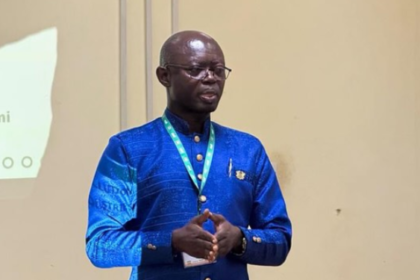The President of the Ghana Stammering Association, Emmanuel Addo, has appealed to fluent speakers to avoid completing the sentences of people who stammer (PWS), stressing that such actions—though often well-intentioned—can be counterproductive and disempowering.
In an interview with The Mirror over the weekend, Mr. Addo explained that stammering is not a result of forgetfulness or uncertainty. When fluent speakers interrupt or try to “help” by finishing sentences, it prevents PWS from fully expressing themselves and being truly heard.
“From experience, people who stammer often go back and repeat what they were supposedly helped to say. It’s not helpful—it’s frustrating,” he said.
He encouraged the public to simply ask PWS what kind of support they find helpful, rather than assuming.
Ridicule Deepens the Stigma
Mr. Addo condemned the common tendency to mock or ridicule people who stammer, calling it cruel and unacceptable. He reminded the public that stammering is often beyond a person’s control, and such mockery only worsens the stigma and emotional burden.
“Fluent speakers must show empathy and patience. Encouragement and kindness go much further than mockery,” he added.
Understanding the Causes of Stammering
Adelaide Emma Yirenkyi, a paediatric speech and language therapist, explained that stammering is linked to neurological differences, where the brain’s coordination of speech processes functions slightly differently. It is not caused by lack of intelligence or emotional instability.
She added that genetics also play a role, with stammering often running in families.
“There are effective speech therapy strategies to help reduce disfluency,” she noted, adding that psychological support is often needed as well—especially for individuals dealing with public speaking anxiety or fear of being judged.
Parents Have a Critical Role
Ms. Yirenkyi cautioned parents against being harsh or overly corrective toward children who stammer.
“Shaming, yelling, or demanding ‘perfect’ speech only increases anxiety and worsens the stammer. Instead, allow them time to express themselves without interruption,” she advised.
Mr. Addo echoed this, urging parents to celebrate the achievements of children who stammer and support their dreams, no matter what profession they aspire to.
“Never discourage a child from pursuing their goals simply because they stammer. Assure them of your support,” he said.
Support and Advocacy Efforts
Mr. Addo noted that the Ghana Stammering Association provides referrals to speech and language therapists, organizes monthly support groups, and engages in public education and advocacy. However, the association continues to face challenges such as limited funding, restricted access to schools, and difficulty reaching PWS outside Accra.
‘Camp Dream. Speak. Live.’: Inspiring Confidence in Children
The team also visited 13-year-old Kennedy Mensah Dogbe, a participant in the Association’s initiative, ‘Camp Dream. Speak. Live.’, held from August 11–15. The camp targeted children from basic schools in Chorkor, Korle-Gonno, and La, and focused on building confidence through the CARE model: Communication, Advocacy, Resiliency, and Education.
Kennedy, who dreams of becoming an archaeologist, said the camp taught him to embrace his voice and not avoid challenging words.
“I learned that my voice, tone, speech rate, and body language all help me communicate better,” he shared.
“Now, when people tease me, I educate them—stammering isn’t a disease or contagious. It just means I speak a little differently.”
Teachers Can Make a Difference
Mr. Theophilus Agbo, a teacher at Chorkor Presby JHS and camp coordinator, shared his personal experience as someone who stammers. He noted that many students who stammer avoid speaking in class out of fear of ridicule, often misunderstood even by their own families.
“With the right support and environment, these students are building confidence. It shows that stammering doesn’t define them—it just shapes how they communicate.”
Final Message
The Ghana Stammering Association continues to champion acceptance, understanding, and equal opportunities for all Ghanaians who stammer. As Mr. Addo put it:
“If we listen more and interrupt less, we empower those who stammer to find their voice—and keep it.”














